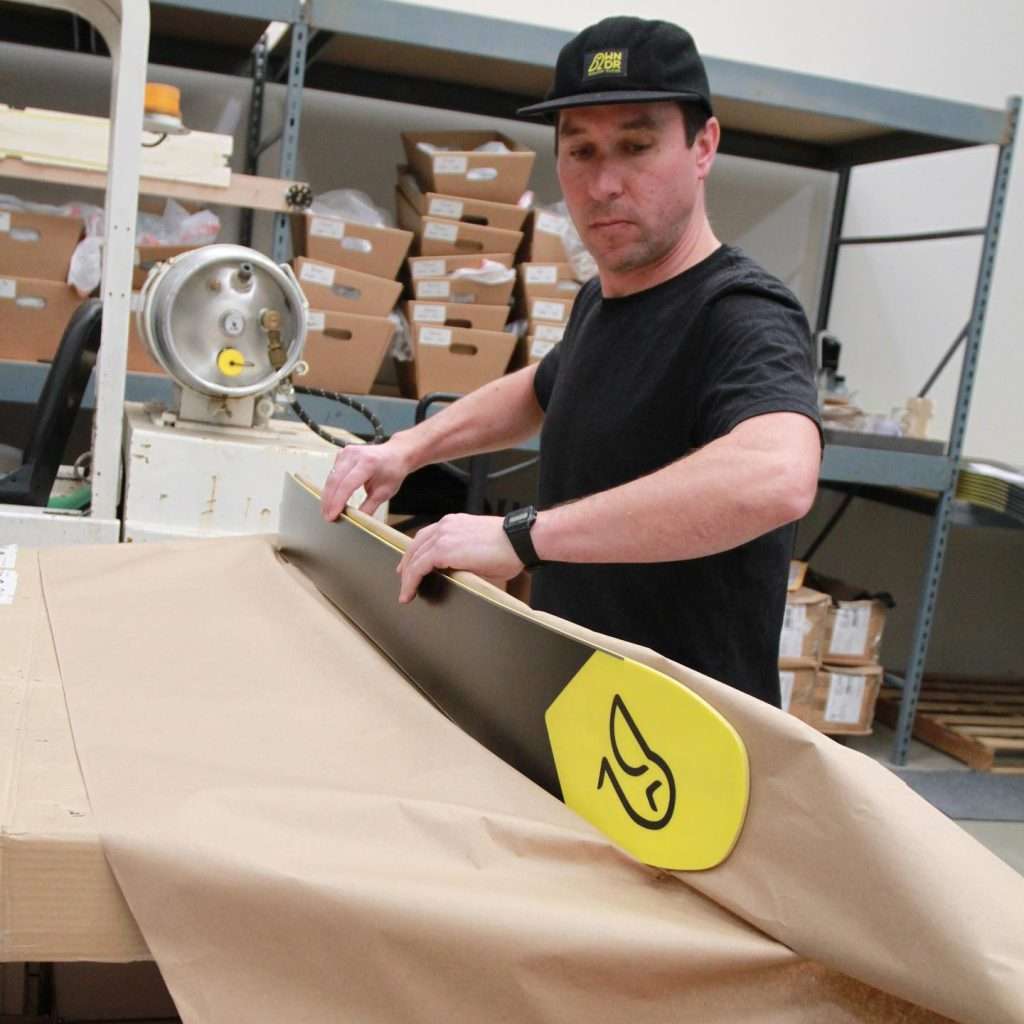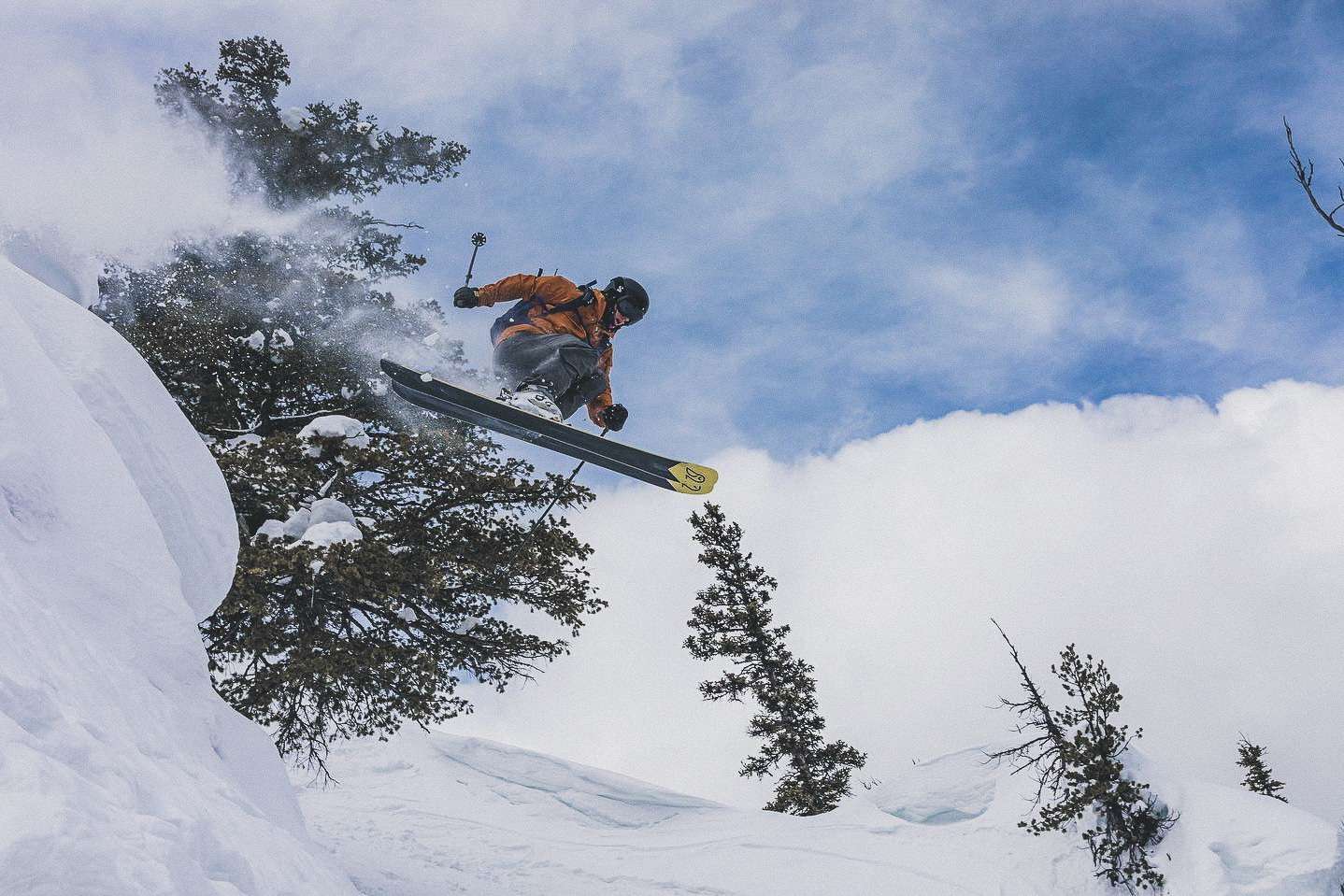Winter sports are getting a sustainable upgrade from the unlikeliest of resources. WNDR Alpine is making skis from microalgae.
The outdoor sports company WNDR Alpine is using microalgae as a sustainable replacement for petroleum. The company says it feeds algae cells a sugar-like substance and the microalgae produce oil that the company says isn’t just better for the planet—it makes a better ski, too.
“You can actually get oils that you can’t get from ordinary petroleum,” Xan Marshland, WNDR Alpine’s co-founder and brand development manager told Salt Lake City’s ABC4.
“We have a huge advantage over ordinary petroleum-based materials because we can actually design our oils and then design the materials we make those oils into around specific performance characteristics we are targeting.”
Microalgae vs. petroleum
Reason 120, the new skis, are the most powder-oriented skis yet, according to WNDR Alpine. The company says the microalgae technology delivers “effortless buoyancy and response in soft snow.”

Microalgae—single-celled microscopic organisms found in water—are used in the ski’s stiff polyurethane outer walls as well as the foam core, which makes the skis 15 percent lighter than conventional competitors. Domestically sourced aspen wood, the brand says, is strong and flexible making for a more responsive ski.
“The 21/22 Algal Wall is a big step forward in our mission to optimize our materials for greater ski performance and longevity, while simultaneously reducing our products’ reliance on petroleum inputs,” Dr. Charles Rand, Checkerspot’s Manager of Material Science and Applications Development, said in a statement.
This process makes for a more durable ski that doesn’t “chatter” at high speeds. This launch is WNDR Alpine’s third that features the proprietary algal core.
“We fundamentally believe that the performance of bio-based materials should not be exclusive. We believe in the democratization of materials, and that starts with sharing our bio-based polyurethane with others.”
-Xan Marshland
WNDR Alpine is part of the California-based advanced materials company Checkerspot, which grows the microalgae used in the ski design.
Algae is a sustainable alternative to petroleum-based materials. The fossil fuel requires extensive refining processes that create air pollution. To transform crude oil into petrochemicals releases dangerous toxins that are harmful to humans and damaging to ecosystems. Petroleum is also a finite resource—renewable alternatives, like microalgae, can contribute to a shift in energy production and use as well as the creation of more sustainable materials.
The company says its aim is to extend its resources to the outdoor sports industry.
“We fundamentally believe that the performance of bio-based materials should not be exclusive. We believe in the democratization of materials, and that starts with sharing our bio-based polyurethane with others,” Marshland says.
“As soon as I joined Checkerspot, I always knew I wanted to create a ski like this,” said Pep Fujas, professional skier and WNDR Alpine’s VP of Marketing and Product Development. “Although it may look like a one-trick pony to the uninitiated, I have personally been amazed by the capability enabled by the materials in the ski, whether it’s a deep powder day or not. So I’m incredibly proud to unveil a ski that I’ll be skiing day-in, day-out through the middle of winter.”
The company is already in talks with other ski companies and snowboard companies, looking at how they can bring the algal tech to their offerings. WNDR Alpine may be the first to use the algae, but it doesn’t intend to be last. Marshland says microalgae and other bio-based materials will be coming to more products in the near future—and at more competitive prices.
“We intend to disrupt and shake up the industry,” says Marshland. “It has, for too long, in my opinion, been relying on petroleum-based inputs.”
Related: The 7 Best Eco Outerwear Picks From the Ethos Founders to Keep You Sustainable and Warm


